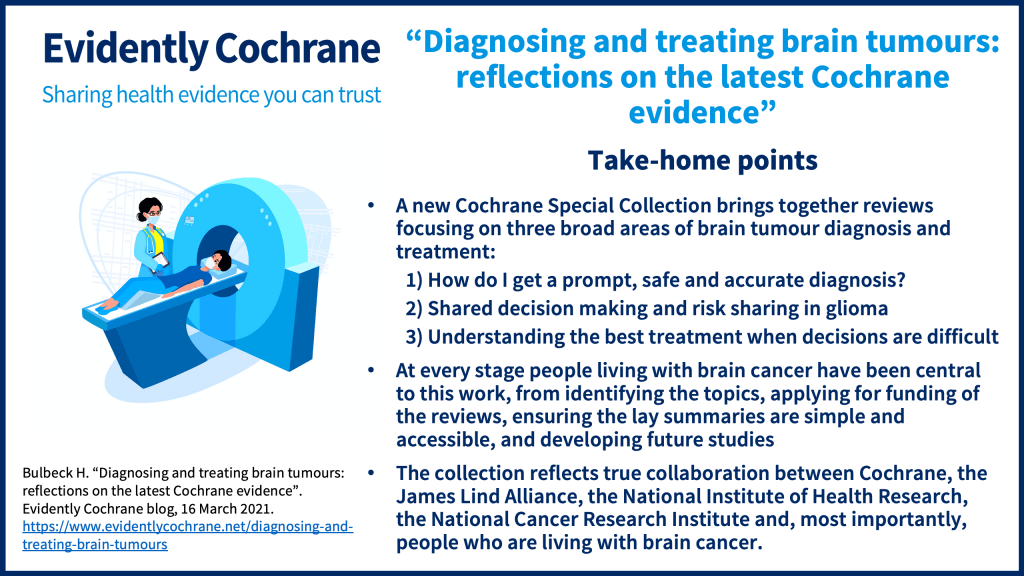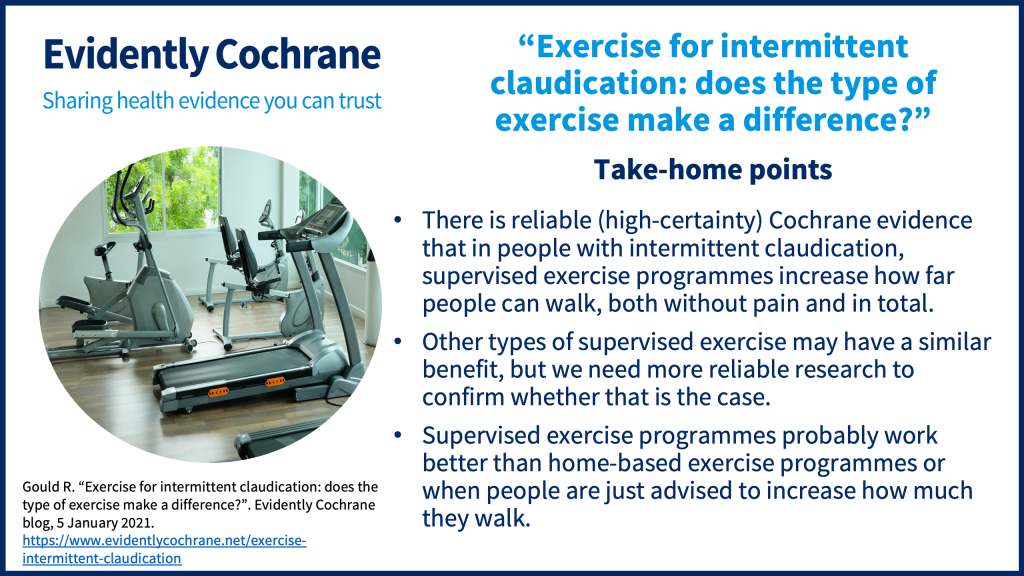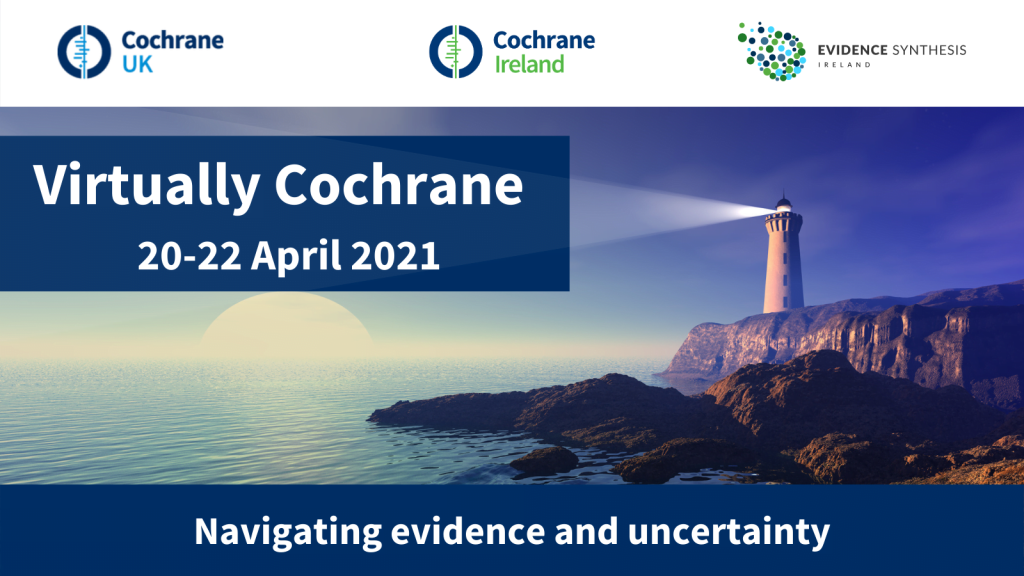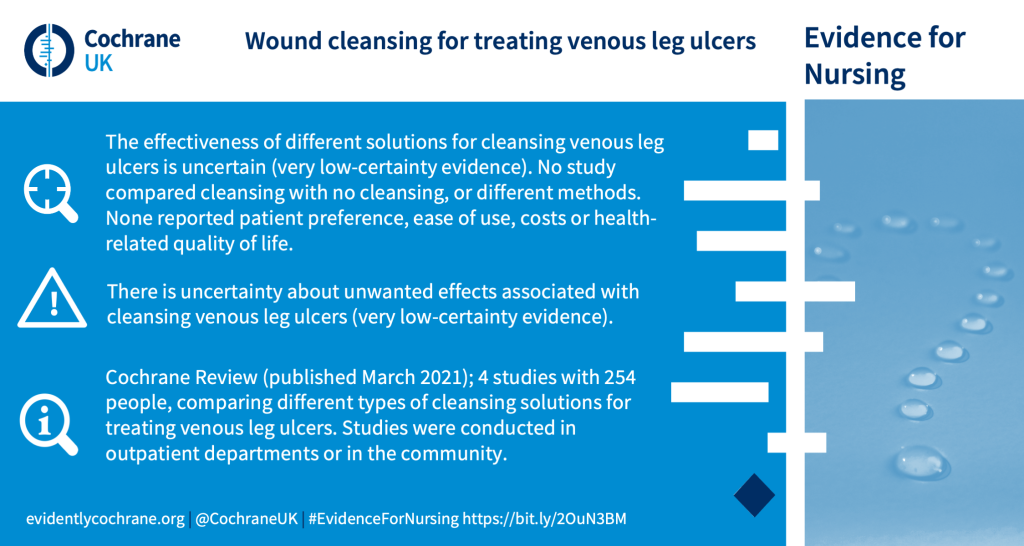The latest evidence and resources for nurses and clinical support staff. You can either scroll through this page or click on any of the links below to jump to the relevant section.
Please note, unlike the rest of our blogs, our Evidence for Nursing: new evidence and resources blogs will not be updated.
- COVID-19
- Cancer
- Cardiovascular health
- Care of the newborn, including preterm infants
- Children – virtual reality to distract from pain in healthcare settings
- Critical and emergency care
- Dementia
- Endometriosis
- Mental health
- Organization of care
- Perioperative care
- Pressure injury
- Research participation
- Respiratory disease
- School-based interventions
- Skin and soft tissue infection
- Smoking cessation
- Stroke rehabilitation
- Subfertility
- Wound care
- Coming up…
COVID-19
COVID-19
COVID-19
Cochrane is producing reviews and resources for the COVID-19 pandemic. We have blogged about many of them and this blog COVID-19 evidence: a Cochrane round-up brings together a large collection of evidence and resources, starting from when this evidence was first being produced in spring 2020. Like the reviews themselves, all our blogs are updated to reflect new evidence.
Cochrane’s response to the pandemic had to meet the needs of evidence users and decision‐makers as it developed and how this is being done is discussed in an Editorial COVID-19: working together and making a difference for decision-makers. Cochrane has also signed on to the World Health Organization’s call for action about managing infodemics and WHO’s Vaccine Equity Declaration.
You may also be interested to know about iHealthFacts, an online resource where anyone can ask for the evidence behind health claims. Read more in Cochrane Ireland vs COVID-19: iHealthFacts.ie ‘fact checking’ claims in a pandemic.
Cochrane Special Collections
Cochrane Special Collections assemble Cochrane ReviewsCochrane Reviews are systematic reviews. In systematic reviews we search for and summarize studies that answer a specific research question (e.g. is paracetamol effective and safe for treating back pain?). The studies are identified, assessed, and summarized by using a systematic and predefined approach. They inform recommendations for healthcare and research. on important topics for the prevention and treatmentSomething done with the aim of improving health or relieving suffering. For example, medicines, surgery, psychological and physical therapies, diet and exercise changes. of COVID-19. They are developed with experts from our global Cochrane network. They are based on World Health Organization interim guidance, and continuously updated. You can find Coronavirus (COVID-19) Special Collections here. Among them is Coronavirus (COVID-19): evidence relevant to critical care, most recently updated in March 2021.
Cochrane Podcasts
Cochrane COVID-19 Podcasts offer short summaries of Cochrane COVID-19 reviews from the authors themselves. A good way to hear the latest Cochrane evidenceCochrane Reviews are systematic reviews. In systematic reviews we search for and summarize studies that answer a specific research question (e.g. is paracetamol effective and safe for treating back pain?). The studies are identified, assessed, and summarized by using a systematic and predefined approach. They inform recommendations for healthcare and research. in under 5 minutes each.
Cochrane Clinical Answers
Cochrane Clinical Answers (CCAs) provide a readable, digestible, clinically-focused entry point to rigorous research from Cochrane Reviews. They are designed to be actionable and to inform point-of-care decision-making.
Each CCA contains a clinical question, a short answer, and dataData is the information collected through research. for the outcomesOutcomes are measures of health (for example quality of life, pain, blood sugar levels) that can be used to assess the effectiveness and safety of a treatment or other intervention (for example a drug, surgery, or exercise). In research, the outcomes considered most important are ‘primary outcomes’ and those considered less important are ‘secondary outcomes’. from the Cochrane Review deemed most relevant to practising healthcare professionals. The evidence is displayed in a user-friendly tabulated format that includes narratives, data, and links to graphics.
You can find Cochrane Clinical Answers related to COVID-19 here.
Best of the Cochrane Library
Best of the Cochrane Library: 2020 in review
Cancer
Brain tumour diagnosis and management
Special Collection: Brain tumour diagnosis and management
The Evidently Cochrane blog Diagnosing and treating brain tumours: reflections on the latest Cochrane evidence has been written for people living with a brain tumour, healthcare practitioners and anyone with an interest in brain tumours. In it, Helen Bulbeck, Cochrane consumer representative and director of policy and services for brainstrust, looks at the latest Cochrane evidence on brain tumours and reflects on what this special collection means for the brain tumour community and why collaboration has been key to the success of this work.

Exercise for cachexia
Cochrane Review: Exercise for cancer cachexia in adults (March 2021).
Preventing bladder dysfunction after radical hysterectomy
Cochrane Review: Postoperative interventions for preventing bladder dysfunction after radical hysterectomy in women with early‐stage cervical cancer (January 2021)
Specialist breast care nurses
Cochrane Review: Specialist breast care nurses for support of women with breast cancer (February 2021)
Cardiovascular health
Alcohol intake
Cochrane Clinical Answers:
Blood pressure targets
Cochrane Clinical Answer: For people with hypertension, how does a lower blood pressure (BP) target compare with a standard target?
Discontinuing antihypertensive medication
Cochrane Clinical Answer: What are the effects of discontinuing antihypertensive medication prescribed to older adults for high blood pressure or heart disease prevention?
Intermittent claudication
In the blog Exercise for intermittent claudication: does the type of exercise make a difference? Dr Rebecca Gould, Sport and Exercise Medicine Registrar and Cochrane UK Fellow, looks at the latest Cochrane evidence on exercise for intermittent claudication (lower leg pain that comes on during exercise) and explores if the type of exercise undertaken makes a difference.

There’s also a Cochrane Clinical Answer: How do alternative modes of exercise training compare with supervised walking for people with intermittent claudication?
Salt reduction
Cochrane Clinical Answer: How does dietary salt reduction affect cardiovascular biomarkers and hormone levels in healthy normotensive and hypertensive adolescents and adults?
Walking and blood pressure
Featured Review: The effect of walking on blood pressure control (February 2021)
Care of the newborn, including preterm infants
Diet – preterm infants
Cochrane Reviews:
Enteral zinc supplementation for prevention of morbidity and mortality in preterm neonates (March 2021)
High versus low medium chain triglyceride content of formula for promoting short‐term growth of preterm infants (February 2021)
High versus standard volume enteral feeds to promote growth in preterm or low birth weight infants (March 2021)
Individualized versus standard diet fortification for growth and development in preterm infants receiving human milk (November 2020)
Cochrane Clinical Answers:
Head position during nursing
Cochrane Clinical Answer: How do different head positions during nursing compare for improving outcomes for preterm infants?
Indomethacin for symptomatic patent ductus arteriosus
Cochrane Review: Indomethacin for symptomatic patent ductus arteriosus in preterm infants (January 2021)
Interventions to prevent cerebral palsy
Cochrane Clinical Answer: What are the effects of interventions to prevent cerebral palsy in preterm or low birth weight infants?
Cochrane Clinical Answer: What are the effects of interventions to prevent cerebral palsy in neonates with perinatal asphyxia or evidence of neonatal encephalopathy?
Lung recruitment manoeuvres in mechanically ventilated neonates
Cochrane Review: Lung recruitment manoeuvres for reducing mortality and respiratory morbidity in mechanically ventilated neonates (March 2021)
Management of transient tachypnoea of the newborn
Cochrane Review: Fluid restriction in the management of transient tachypnea of the newborn (February 2021)
Cochrane Review: Salbutamol for transient tachypnea of the newborn (February 2021)
Nutrition education
Cochrane Clinical Answer: How does nutrition education compare with conventional management for improving nutritional outcomes in term‐born infants?
Opioids for newborn infants receiving mechanical ventilation
Cochrane Review: Opioids for newborn infants receiving mechanical ventilation (March 2021)
Probiotics for prevention of necrotising enterocolitis
Cochrane Podcast: Probiotics for prevention of necrotising enterocolitis in very preterm or very low birthweight infants
Skin care to prevent eczema and food allergies
Featured Review: Does moisturising baby skin prevent eczema or food allergies?
Cochrane Clinical Answer: For infants, what are the effects of skin care to prevent or reverse an impaired skin barrier on the development of eczema and food allergies?
Children – virtual reality to distract from pain in healthcare settings
Cochrane Podcast: What are the benefits and risks of using virtual reality in a healthcare setting to distract children from pain?
Critical and emergency care
Antibiotic prophylaxis
Cochrane Clinical Answer: For adults and adolescents receiving intensive care, what are the effects of antibiotic prophylaxis to reduce respiratory tract infection and mortality?
High-flow nasal cannulae
Cochrane Review: High‐flow nasal cannulae for respiratory support in adult intensive care patients (March 2021)
Oral care for mechanically ventilated patients
Cochrane Clinical Answer: What are the effects of chlorhexidine rinses and toothbrushing for critically ill people who are mechanically ventilated?
Telemedicine
Featured Review: What are healthcare stakeholders’ perceptions and experiences of factors affecting the implementation of critical care telemedicine? (February 2021)
Dementia
Sleep disturbance
Cochrane Clinical Answer: For older adults with Alzheimer’s dementia and sleep disturbances, what are the effects of orexin antagonists?
Support for informal carers
Cochrane Podcast: Remotely delivered information, training and support for informal caregivers of people with dementia
Withdrawal or continuation of cholinesterase inhibitors or memantine or both
Cochrane Review: Withdrawal or continuation of cholinesterase inhibitors or memantine or both, in people with dementia (February 2021)
Endometriosis
March was Endometriosis Awareness Month and we had a special series on Evidently Cochrane and on social media, in partnership with Cochrane Gynaecology and Fertility and a panel of clinical and patient experts. The series is introduced in this blog – Endometriosis: #MyEndometriosisQuestion – a special series. You can see all the Evidently Cochrane blogs in our endometriosis series here.
Cochrane news item: Endometriosis Awareness Month
Mental health
Postnatal depression
Cochrane Review: Antidepressant treatment for postnatal depression (February 2021)
Organization of care
Patient access to electronic health records
Featured Review: Do patients manage their health care better if they can access their electronic health records?
Multimorbidity – organizational interventions
Cochrane Clinical Answer: What are the effects of organizational interventions directed toward people with multimorbidity?
Perioperative care
Melatonin for anxiety
Cochrane Clinical Answer: For adults with preoperative and postoperative anxiety, what are the effects of melatonin?
Postoperative pain
Cochrane Clinical Answer: How does diclofenac compare with placebo or other non‐steroidal anti‐inflammatory drugs (NSAIDs) for adults with acute postoperative pain?
Pressure injury
Cochrane Review: Patient and lay carer education for preventing pressure ulceration in at‐risk populations (February 2021)
How does frequency of repositioning affect pressure injury in older adults?
How do different tilt positions affect pressure injury when older adults are repositioned?
Research participation
Respiratory disease
Anti-IL5 therapies for COPD
Featured review: Anti-IL5 therapies for chronic obstructive pulmonary disease
Chronic respiratory disease and telemedicine
Cochrane Review: Telerehabilitation for chronic respiratory disease (January 2021)
Exercise training for bronchiectasis
Cochrane Review: Exercise training for bronchiectasis (April 2021)
Pulmonary rehabilitation for interstitial lung disease
Cochrane Review: Pulmonary rehabilitation for interstitial lung disease (February 2021)
School-based interventions
Cochrane Clinical Answer: How do physical activity interventions with or without healthy lifestyle education tools compare with a standard physical education curriculum for promoting school achievement and cognition among children and adolescents classified as overweight and obese?
Skin and soft tissue infection
Cochrane Clinical Answer: For people with skin and soft tissue infection, how do different systemic antibiotics compare?
Smoking cessation
Behavioural support
Featured Review: Does behavioural support help people to stop smoking?
Cochrane Clinical Answers:
How do motivational and behavioral interventions compare with no intervention for smoking cessation?
E-cigarettes
Cochrane Podcast: Let’s talk e-cigarettes
Eight ways to quit
Eight ways to quit smoking in 2021: video talks through the Cochrane evidence.
Smoking cessation and mental health
Cochrane Review: Smoking cessation for improving mental health (March 2021)
Cochrane Podcast: Smoking cessation for improving mental health
Cochrane Clinical Answer: What are the effects of smoking cessation on anxiety and depression?
Type of provider
Cochrane Clinical Answer: How does type of provider impact effectiveness of motivational and behavioral smoking cessation interventions?
Stroke rehabilitation
Cochrane Clinical Answers:
How does motor imagery compare with other therapies for gait rehabilitation in adults after stroke?
What are the effects of transcranial direct current stimulation (tDCS) after stroke?
Subfertility
Cochrane Podcast: Vitamins and minerals for subfertility in women
Cochrane Clinical Answer: For women undergoing assisted reproduction for subfertility, what are the effects of antioxidants?
Wound care
Cleansing venous leg ulcers
Featured review: Does cleaning venous leg ulcers help them to heal?
Negative-pressure wound therapy for surgical wounds
Cochrane Clinical Answer: What are the effects of negative‐pressure wound therapy (NPWT) for people with surgical wounds healing by primary closure?
Coming up
Virtually Cochrane: an online event
Registration is now open for ‘Virtually Cochrane’, an online event for all those involved with, or interested in, planning, doing, sharing and using health and healthcare evidence. It will take place on 20 – 22 April 2021. You can read all about it, and register, here.

The next collection of evidence will be published here in July 2021. We may have new blogs and blogshots on individual reviews meanwhile. You can find all our blogs relevant to nursing here and blogshots here.
Join in the conversation on Twitter with @CochraneUK or leave a comment on the blog. Please note, we cannot give specific medical advice and do not publish comments that link to individual pages requesting donations or to commercial sites, or appear to endorse commercial products. We welcome diverse views and encourage discussion but we ask that comments are respectful and reserve the right to not publish any we consider offensive. Cochrane UK does not fact check – or endorse – readers’ comments, including any treatments mentioned.
Sarah Chapman and Selena Ryan-Vig have nothing to disclose.




I just wanted to drop by and say that this blog post on new evidence and resources for nursing in Q2 2021 is fantastic. It’s great to see the latest research and information compiled in such an accessible way. Kudos to the authors for keeping us nurses in the loop. Looking forward to diving into these resources and staying up-to-date. Keep up the great work! 👩⚕️💪
Have there been any studies or resources specifically focusing on the role of nurses in addressing mental health issues? It would be interesting to explore how nurses are being trained and supported to provide holistic care to patients with mental health concerns.